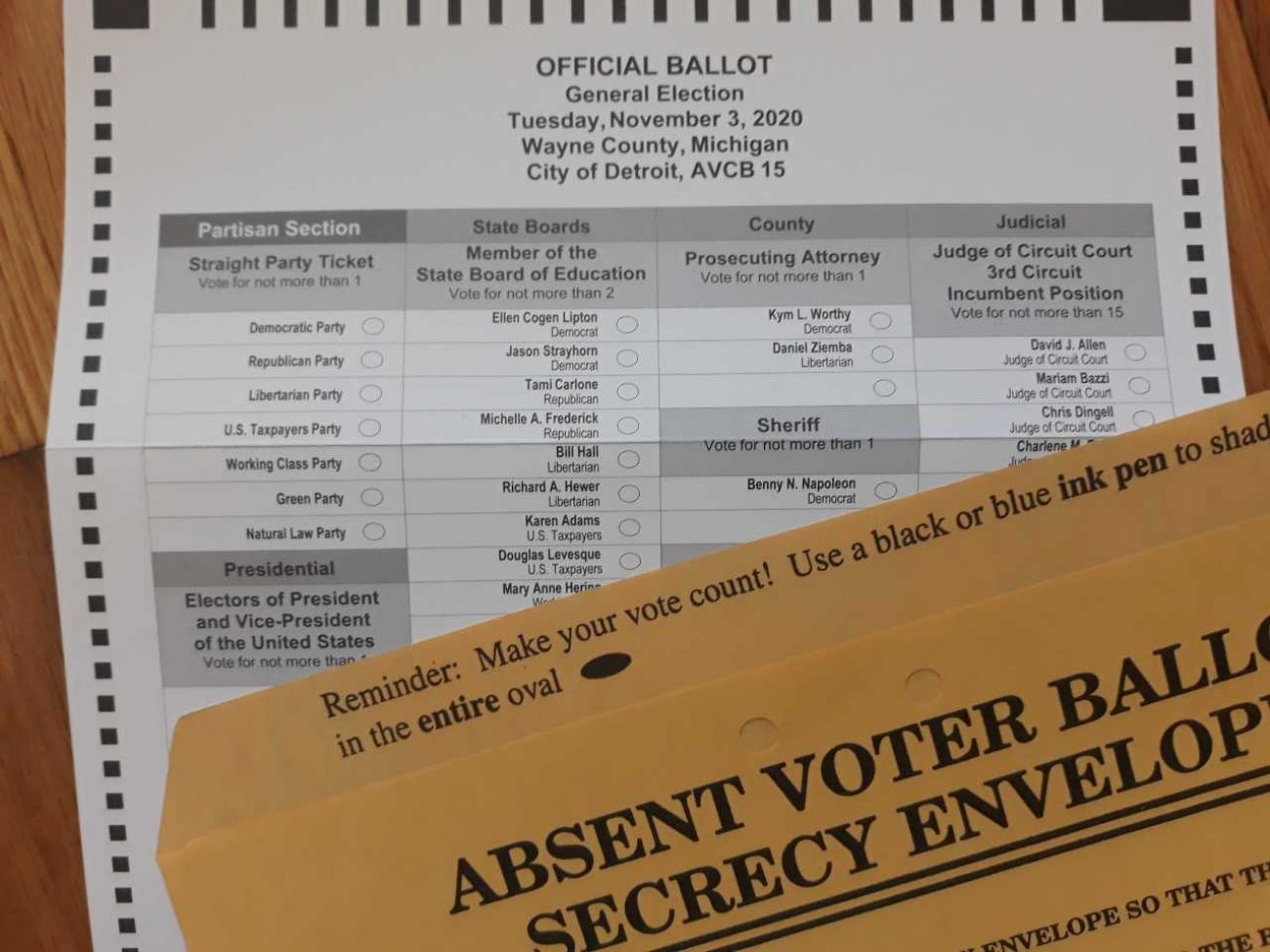Michigan Democrats push 8 days of absentee ballot counting to curb ‘chaos’

- Michigan bills propose eight days of early absentee ballot counting
- Democrats aim to speed up results, discourage misinformation
- Republicans appear likely to oppose, citing potential for fraud
LANSING — Michigan Democrats on Tuesday advanced legislation that would allow local clerks to begin counting absentee ballots up to eight days before an election, a reform they contend would deter the kind of misinformation that followed the 2020 presidential election.
A record 3.3 million Michigan voters cast absentee ballots in that pandemic contest, leading to delayed results as some of the state’s largest cities continued to tabulate votes more than 24 hours after polls closed. Then-President Donald Trump used the window on election night to falsely claim he’d won the state despite what was later certified as a 154,188-vote loss in Michigan to Joe Biden.
While local clerks had called for more flexibility to begin counting mail-in votes days before election day, the then-Republican-led Legislature gave them just one extra day to open ballot envelopes. Democrats, now in full control of the Legislature for the first time in 40 years, want to allow election workers to not only open envelopes early, but also feed them through tabulators before Election Day.
“The chaos that happened in 2020 was predicted and predictable,” Sen. Jeremy Moss, a Southfield Democrat who chairs the Senate Elections Committee, told reporters last week as lawmakers began debating his legislation.
“Heading into another presidential election cycle we're taking this huge step to … reduce that chaos and … make it easier on clerks to conduct elections.”
Absentee ballots take longer to count than in-person ballots because clerks must verify voter signatures and open envelopes before feeding them into tabulators. In 2020, that meant rural communities where Trump dominated with in-person voters generally reported results faster than big cities that favored Biden.
Mail-in voting has surged in Michigan since 2018, when voters approved a constitutional amendment guaranteeing the right to cast an absentee ballot without reason. More big election changes are on the way for 2024 as the Legislature works to implement another voter-approved constitution amendment guaranteeing at least nine days of early in-person voting.
Separate but similar bills approved Tuesday by Democrats in the Senate and House elections committees would allow clerks in cities with at least 5,000 residents to begin counting absentee ballots eight days before polls open. Smaller communities would get one day for early counting.
The legislation, now headed to the floor of each chamber for additional consideration, would not change rules prohibiting the disclosure of any results until polls close at 8 p.m. on Election Day. That would remain a felony crime, punishable by up to five years in prison.
But Republicans argue the legislation could compromise election integrity.
“I just think it’s another way that they can see where the numbers are and votes are and decide the outcome of what needs to be,” said Rep. Rachelle Smit, R-Martin in Allegan County, a former clerk who now serves as vice chair of the House Elections Committee.
“It just opens up the door for more room for fraud,” Smit told Bridge Michigan after the Tuesday hearing, where she chose to “pass” rather than vote on legislation she said she is likely to oppose on the floor.
Michigan courts rejected claims of widespread voter fraud in the 2020 and 2022 elections, most recently in Wayne County where a judge last week sanctioned Michigan Republican Party Chairwoman Kristina Karamo for a “frivolous” lawsuit that sought to invalidate all mail-in ballots in Detroit last year.
Supporters of the new legislation contend allowing clerks to count absentee ballots early would increase security by reducing the potential for late-night worker fatigue and limit how many times they have to physically handle ballots.
“There’s nothing in this bill that opens the door for fraud or invites it,” House Elections Chair Penelope Tsernoglou, D-East Lansing, told Bridge. “This is just allowing clerks to have the appropriate amount of time to process the ballots. It’s done in the majority of other states.”
Under the legislation, voters would also have a new option to feed their own absentee ballot into a tabulator if they want to ensure it is counted, complementing separate bills that would require new electronic tracking programs to inform voters when mail-in ballots are received and processed.
The proposals would also remove current rules requiring election workers at absentee counting boards to be sequestered until the job is done, a process that took more than 24 hours in some communities in the last presidential election.
Giving clerks and workers more flexibility would ensure they have “awareness and alertness” as they count absentee ballots, Democratic Lansing City Clerk Chris Swope told lawmakers Tuesday in committee testimony.
The one or two days of "pre-processing" that lawmakers allowed for the 2020 and 2022 elections – allowing clerks to open envelopes but not count absentee ballots – "actually turned out to be a pretty inefficient way to handle ballots" because "we ended up handling ballots multiple times," Swope added.
Allowing early tabulation would be "more secure" because "once you finish tabulating (ballots), you're going to seal them in a container and they will never be touched again unless there's a recount or some other action,” he said.
If enacted, Michigan would become the 11th state to allow clerks to count absentee ballots before Election Day, and the thirty-ninth state to allow for some form of early processing, according to the National Conference of State Legislatures.
Former Senate GOP Leader Mike Shirkey, R-Clarklake, acknowledged after the 2020 election that the Legislature could have prevented delayed results that year by giving clerks more flexibility to process absentee ballots.
Shirkey touted laws in Florida, a Republican-led state, that allow clerks to feed ballots into tabulators weeks before Election Day. Despite a population more than twice the size of Michigan’s, Florida was able to report results much faster.
The new legislation will "help diminish the type of toxic misinformation that we had in 2020, and to a lesser extent in 2022," said Erica Peresman, an attorney and senior advisor to the Promote The Vote coalition that has pushed to overhaul Michigan election law.
"The results of an election don't change when reporting happens later. But unfortunately, there is a perception sometimes that they change when you have precinct results being reported prior to absentee ballot results. And that is exactly what happened in 2020."
See what new members are saying about why they donated to Bridge Michigan:
- “In order for this information to be accurate and unbiased it must be underwritten by its readers, not by special interests.” - Larry S.
- “Not many other media sources report on the topics Bridge does.” - Susan B.
- “Your journalism is outstanding and rare these days.” - Mark S.
If you want to ensure the future of nonpartisan, nonprofit Michigan journalism, please become a member today. You, too, will be asked why you donated and maybe we'll feature your quote next time!




